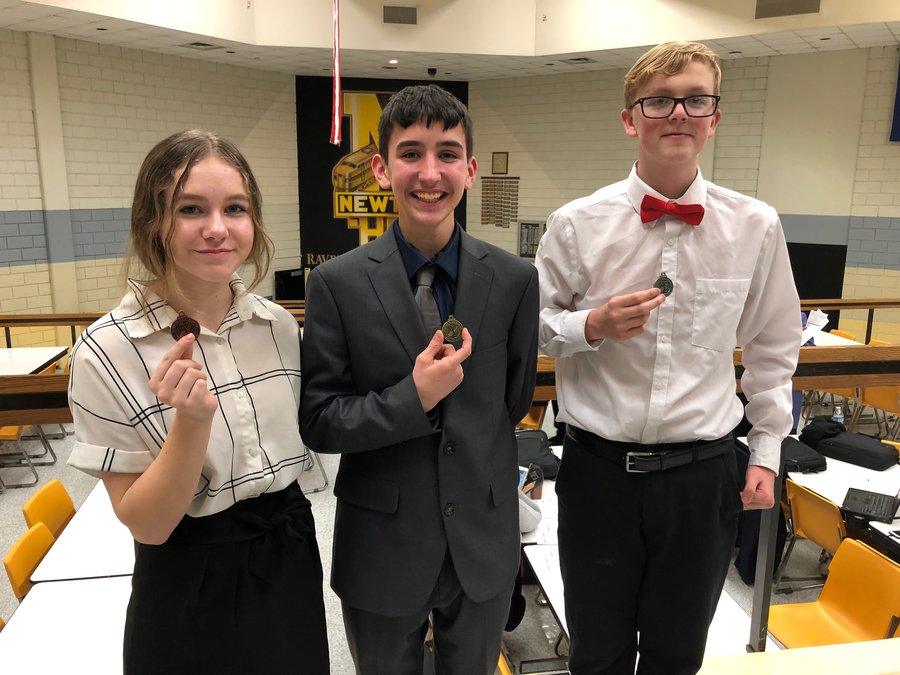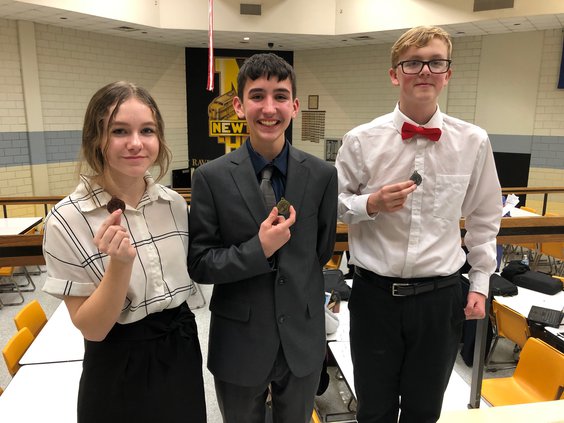Three Great Bend High School freshmen brought home medals from the Student Congressional Debate Tournament held at Newton High School on Feb. 1. GBHS students that placed included Skylar Fletcher, third place, Novice House 1; Malachi Wasson, first place, Novice House 2; and Isaiah Smith, second place, Novice House 2.
Great Bend students were divided into two different novice chambers and debated legislation that included banning single-use plastics, implementing federal court term limits, and recognizing Taiwan as an independent state.
Student Congress is a mock congressional session run by the students. The purpose of the student congress competition is for high school students to present bills and resolutions, and weigh the benefits and problems created by the legislation being discussed. Students are also expected to utilize parliamentary procedure and hone their public speaking skills in the debate.
GBHS students began the process of passing legislation last fall when they learned how to research and write mock legislation. The challenge for writing legislation is to find topics that are serious in nature and substantial in scope, but also debatable. Most topics have a national scope and can include a social, economic or political focus. They are timely and relevant to the students. The GBHS delegation settled on proposing a bill to secure net neutrality.
The students’ written legislation is gathered and dispersed so that competitors can begin their research, write arguments and organize speeches in favor and in opposition to each piece of legislation. When the students arrive at a competition, they set a docket and begin debate. The speeches alternate between those who are in favor and those who are opposed to the legislation. The speeches are usually three minutes in length and include two to three well-developed arguments with credible evidence as support.
In addition to speaking, students also learn the art of asking and answering questions. Questions range from clarification questions to questions that expose potential flaws in the speakers’ arguments, as well as questions that lay the groundwork for upcoming arguments on the legislation.
Judges assign scores to students based on speeches and questioning. All student competitors must know basic parliamentary procedure, such as how to end debate on a piece of legislation or amend a motion. They are critiqued on their ability to effectively present unique arguments that further the debate and refute the opposition.
GBHS speech and debate instructor Kim Heath said she is pleased to see her students excited to compete in congressional debate.
“It is one of the most valuable events because all areas of communication are practiced. Students must express their thoughts clearly and accurately with solid evidence and good reasoning,” she said.
“I can’t tell you how impressed I am that a room full of teens can conduct themselves in such a mature and organized way without the direction of any adults,” Heath continued. “Our students spent their Friday night analyzing, assessing and improving upon issues that are timely and relevant. While few students who participate in student congress may go on to hold public office, these students are learning skills that they can use regardless of what they do after high school.”
GBHS debate students are currently researching the second wave of West Kansas legislation. Their submissions to this packet were bills to remove political party affiliation from ballots and lower the age of compulsory school attendance. These bills and resolutions will be debated for the first time on Friday, Feb. 8, in Abilene.





